- Chapter I - General provisions (including 04 articles, from Article 1 to Article 4)
This chapter provides general contents on the scope of regulation; applicable subjects; time for legal staff to perform one of the tasks and powers of legal work and confirmation documents; codes of legal staff ranks; general standards of legal staff ranks.
1.1. On the scope of regulation and applicable subjects (Article 1)
- Regarding the scope of regulation: The Circular stipulates codes, professional standards, skills and salary scales for legal officer ranks, including senior legal officer, chief legal officer and legal officer.
- Regarding the subjects of application: The Circular applies to civil servants of legal officer ranks at ministries, ministerial-level agencies (including Departments and equivalents under ministries and ministerial-level agencies), specialized agencies under the People's Committees of provinces and centrally-run cities (hereinafter referred to as provincial level); ministries, ministerial-level agencies, agencies under the Government , provincial-level People's Committees and relevant agencies, organizations and individuals.
1.2. Regarding the time of the legal officer performing one of the tasks and powers of legal work
The time of a legal worker performing one of the tasks and powers of legal work is the cumulative time, not including the probationary time of the person performing the work according to the job position in legal work, having a university degree or higher in law and performing one of the tasks and powers prescribed in Chapter II of Decree No. 55/2011/ND-CP dated July 4, 2011 of the Government stipulating the functions, tasks, powers and organizational structure of legal organizations (amended and supplemented by Decree No. 56/2024/ND-CP dated May 18, 2024).
The time of a legal worker is calculated as equivalent to the time of performing one of the tasks and powers of legal work, which is the time of working for compulsory social insurance payment in accordance with the provisions of the Law on Social Insurance (if the working time is not continuous and has not received a one-time social insurance subsidy, it will be accumulated), excluding the probationary period; having a university degree or higher in law and doing work that requires professional qualifications and skills appropriate to the legal work position. The above time is calculated as equivalent to the time of holding the legal officer ranks.
- Chapter II - Duties, tasks, standards and salary scales for legal staff positions (including 04 articles, from Article 5 to Article 8)
This chapter specifically regulates the duties, responsibilities, standards and salary scales for each legal officer rank, specifically:
2.1. For senior legal officer rank (code 15.001) (Article 5)
The Circular stipulates that a senior legal officer is a civil servant with the highest level of expertise and professional qualifications in law at the central level, responsible for organizing the implementation of laws in many fields of state management or at least one specialized field of state management; providing general advice and policy planning; developing or appraising legal documents; organizing the implementation of legal work contents of the assigned sector or field and researching, proposing and providing professional guidance on legal work.
Senior legal officers must meet the following professional and technical standards: (i) Deeply understand and skillfully apply the Party's guidelines, policies, and guidelines, relevant State laws, documents of superiors, and socio- economic development goals in the assigned industry and field; grasp the situation and development trends in the country and the world in the assigned industry and field of state management; (ii) Have in-depth knowledge and understanding of professional expertise in legal work and legal documents of the assigned industry and field of state management; skillfully apply professional knowledge and skills in legal work in organizing the implementation of assigned tasks; (iii) Have the capacity to propose and advise on policy planning; have specialized skills in drafting, commenting on, and appraising documents related to assigned duties and tasks; (iv) Have the capacity to guide the application of law and professional expertise in legal affairs according to the assigned state management sector and field; (v) Have the ability to work independently, work in a team and coordinate well with relevant agencies, units and individuals in performing assigned tasks; (vi) Have the skills to use information technology and foreign languages appropriate to the functions and tasks of the agency, organization or unit using the job position approved by the competent authority.
In addition to meeting the standards of professional competence, senior legal officers must also meet the standards of training and education as follows: (i) Have a university degree or higher in law; (ii) Have a certificate of legal training; (iii) Have a diploma of advanced political theory or a diploma of advanced political-administrative theory; (d) Have a certificate of training in state management knowledge according to the standards of senior experts and equivalent or have a diploma of advanced political-administrative theory.
2.2. For the main legal officer rank (code 15.002) (Article 6)
The Circular stipulates that a legal officer is a civil servant with high professional qualifications and expertise in law at the central or provincial level, responsible for organizing the implementation of laws in one or several fields of state management; researching and perfecting policies; developing or appraising legal documents in assigned fields; organizing the implementation of legal work in assigned sectors and fields and researching, proposing and providing professional guidance on legal work.
A chief legal officer must meet the following professional and technical standards: (i) Master the Party's guidelines, policies, and guidelines, relevant State laws, and documents from superiors on the assigned field; master the domestic situation in the assigned state management sector and field; (ii) Have in-depth knowledge and understanding of the law and professional expertise related to the assigned state management sector; skillfully apply professional knowledge and skills in legal work in organizing the implementation of assigned tasks; (iii) Have the capacity to draft, comment on, and appraise documents related to assigned duties and responsibilities; (iv) Have the capacity to guide the application of law and professional expertise in legal affairs in a number of assigned state management sectors and fields; (v) Have the ability to work independently, work in groups, and coordinate with relevant units and individuals in performing assigned tasks; (vi) Have the ability to use information technology and foreign languages appropriate to the functions and tasks of the agency, organization, or unit using the job position approved by a competent authority.
Like senior legal officers, in addition to meeting the standards of professional competence, the chief legal officer must also meet the standards of training and education as follows: (i) Have a university degree or higher in law; (ii) Have a certificate of legal training; (iii) Have a certificate of training in state management knowledge according to the standards of the chief specialist rank and equivalent or have an advanced degree in political and administrative theory.
2.3. For the legal officer rank (code 15.003) (Article 7)
The Circular stipulates that a legal officer is a civil servant with basic professional qualifications and skills in law at the central or provincial level, responsible for organizing the implementation of laws in the field of state management; researching and perfecting policies; developing or appraising legal documents in the assigned field of state management; and performing legal work contents of the assigned sector or field.
Legal officers must meet the following professional and technical standards: (i) Understand and be able to apply the Party's guidelines, policies, and guidelines, relevant State laws, and documents of superiors in legal work according to the assigned sector and field of state management; (ii) Have knowledge and understanding of legal fields and professional expertise in the assigned sector and field of state management; be able to apply professional legal skills in organizing the implementation of assigned tasks; (iii) Be able to draft, comment on, and appraise documents related to assigned duties and responsibilities; (iv) Be able to participate in research and summarize experiences and practices in legal work; (v) Be able to guide the application of laws and professional expertise in legal work according to the assigned sector and field of state management; (vi) Ability to work independently, work in groups and coordinate with relevant units and individuals in performing assigned tasks; (vii) Ability to use information technology and foreign languages appropriate to the functions and tasks of the agency, organization, or unit using the job position approved by a competent authority.
In addition, legal officers must also meet the following standards on training and qualifications: (i) Have a university degree or higher in law; (ii) Have a certificate of training in legal practice; (iii) Have a certificate of training in knowledge and skills of state management for civil servants at the specialist level and equivalent.
2.4. On salary classification for legal staff positions (Article 8)
, 2016) apply the Professional and Technical Salary Table for cadres, civil servants, public employees and armed forces (amended and supplemented by Decree No. 76/2009/ND-CP dated September 15, 2009, Decree No. 14/2012/ND-CP dated March 7, 2012, Decree No. 17/2013/ND-CP dated February 19, 2013, Decree No. 117/2016/ND-CP dated July 21, 2016) to apply the Professional and Technical Salary Table for cadres, civil servants, public employees and armed forces in State agencies for civil servants of legal ranks, specifically: (i) The legal officer rank applies the civil servant salary table type A1; (ii) The senior legal officer rank applies the civil servant salary table type A2, group A2.1; (iii) The senior legal officer rank applies the civil servant salary table type A3, group A3.1.
- Chapter III - Implementation provisions (including 02 articles, Article 9 and Article 10)
This Chapter provides transitional provisions on the transfer of ranks to legal officer ranks; effectiveness and implementation responsibilities, specifically:
3.1. Regarding the transfer of ranks to legal officer ranks (Article 9. Transitional regulations)
The Circular stipulates: as of July 1, 2025, civil servants performing legal work who are being considered for transfer to the corresponding legal officer ranks according to Clause 4, Article 4 of Decree No. 56/2024/ND-CP shall only apply the standards prescribed in Clause 4, Article 4 of Decree No. 56/2024/ND-CP. After July 1, 2025, those appointed to the legal officer ranks must meet the standards and conditions prescribed by the Government on recruitment, use and management of civil servants and this Circular (Article 9 of Circular No. 03/2025/TT-BTP).
3.2. Effectiveness and responsibility for implementation (Article 10)
This Circular takes effect from May 15, 2025. At the same time, the Circular also stipulates the responsibility for organizing the implementation of this Circular. Accordingly, Ministers, Heads of ministerial-level agencies, Heads of Government agencies, Chairmen of Provincial People's Committees and relevant agencies, organizations and individuals are responsible for implementing the provisions of this Circular./.
To Thi Hue
Source: https://sotp.langson.gov.vn/tin-tuc-su-kien/quy-dinh-ma-so-tieu-chuan-chuyen-mon-nghiep-vu-va-xep-luong-doi-voi-cac-ngach-phap-che-vien.html







![[Photo] "Ship graveyard" on Xuan Dai Bay](https://vphoto.vietnam.vn/thumb/1200x675/vietnam/resource/IMAGE/2025/11/08/1762577162805_ndo_br_tb5-jpg.webp)




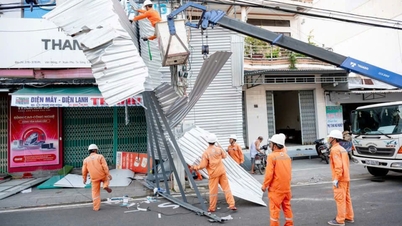



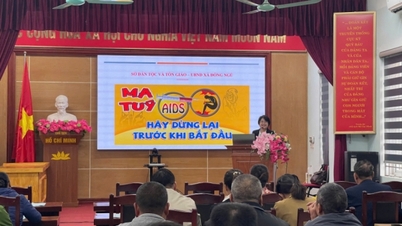







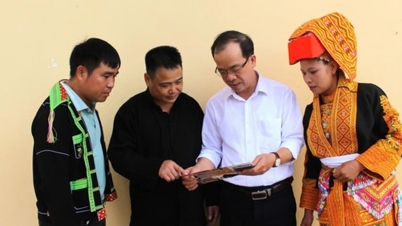
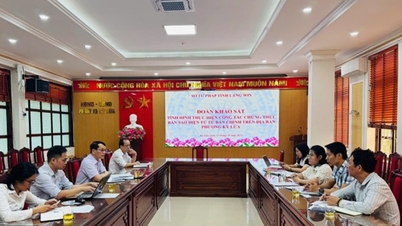


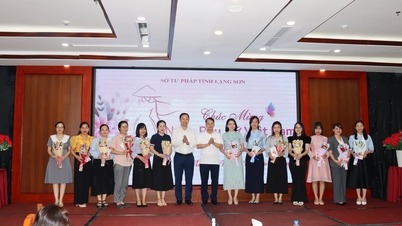




![[Video] Hue Monuments reopen to welcome visitors](https://vphoto.vietnam.vn/thumb/402x226/vietnam/resource/IMAGE/2025/11/05/1762301089171_dung01-05-43-09still013-jpg.webp)

























































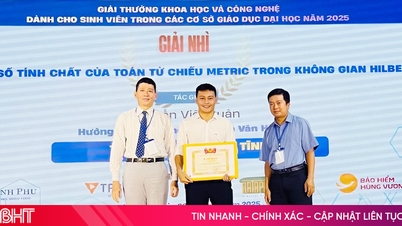
















Comment (0)